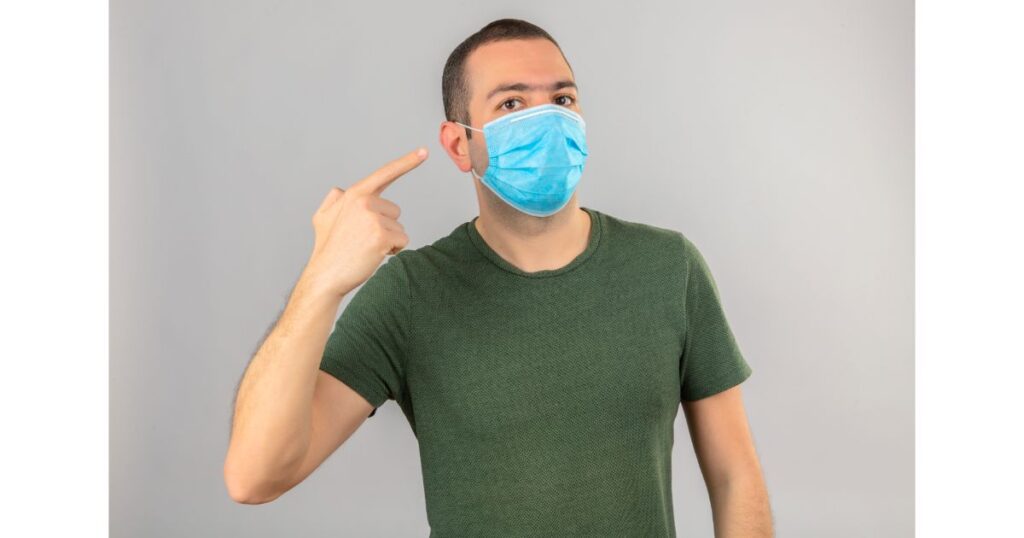JAN ANDOLAN CAMPAIGN FOR COVID-19 “WEAR MASK, FOLLOW PHYSICAL DISTANCING, MAINTAIN HAND HYGIENE”

If COVID-19 is spreading in your community, stay safe by taking some simple precautions, such as physical distancing, wearing a mask, keeping rooms well ventilated, avoiding crowds, cleaning your hands, and coughing into a bent elbow or tissue.
Make wearing a mask a normal part of being around other people.
Masks should be used as part of a comprehensive strategy of measures to suppress transmission and save lives; the use of a mask alone is not sufficient to provide an adequate level of protection against COVID-19.
Here are the basics of how to wear mask:
- Clean your hands before you put your mask on, as well as before and after you take it off.
- Make sure it covers both your nose, mouth and chin.
Here are some specifics on what type of mask to wear and when, depending on how much virus is circulating where you live, where you go and who you are.
- Wear a fabric mask unless you’re in a particular risk group. This is especially important when you can’t stay physically distanced, particularly in crowded and poorly ventilated indoor settings.
- Wear a medical/surgical mask if you:
- Are over 60,
- Have underlying medical conditions
- Are feeling unwell, and/or
- Are looking after an ill family member.

Social Distancing Stops the Spread of Disease:
Some viruses – like the virus that causes COVID-19 – spread easily, according to the Centres for Disease Control and Prevention (CDC). Social distancing puts space between individuals. If someone is sick and there are no people around, a virus cannot spread.
“Social distancing means we are doing our best to stay away from people so as to limit the spread of coronavirus.”
While those at highest risk seem to be those over age 60 and those with chronic health conditions, the best thing everyone can do is adhere to strict social distancing measures as outlined by the CDC and by our government.
“Even if you feel like you’re young and healthy and think you’re probably not going to get sick, we all have parents, grandparents and elderly neighbours in our circles and we are doing this for them.” “Because if you give it to them, they could get really sick. So even if you’re not worried about yourself, there’s somebody in your life who you want to protect.”
Hand Hygiene:
Washing your hands is easy, and it’s one of the most effective ways to prevent the spread of germs. Clean hands can stop germs from spreading from one person to another and throughout an entire community—from your home and workplace to childcare facilities and hospitals.
Follow these five steps every time:
- Wet your hands with clean, running water (warm or cold), turn off the tap, and apply soap.
- Lather your hands by rubbing them together with the soap. Lather the backs of your hands, between your fingers, and under your nails.
- Scrub your hands for at least 20 seconds. Need a timer? Hum the “Happy Birthday” song from beginning to end twice.
- Rinse your hands well under clean, running water.
- Dry your hands using a clean towel or air dry them.
Use Hand Sanitizer When You Can’t Use Soap and Water:
Washing hands with soap and water is the best way to get rid of germs in most situations. If soap and water are not readily available, you can use an alcohol-based hand sanitizer that contains at least 60% alcohol. You can tell if the sanitizer contains at least 60% alcohol by looking at the product label.

Article By Dr. Shaheen Khan,
BUMS, M.D (Medicine)
Medixpress Super Speciality Clinic.
Assitant Professor, Dept. of Medicine,
Z.V.M Unani Medical College & Hospital, Pune
101/102, Grime Tower,
above ICICI Bank, SalunkeVihar Road
For appointments call:
9511868552, 8888522226









